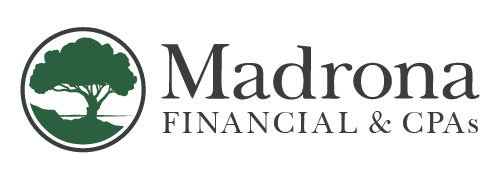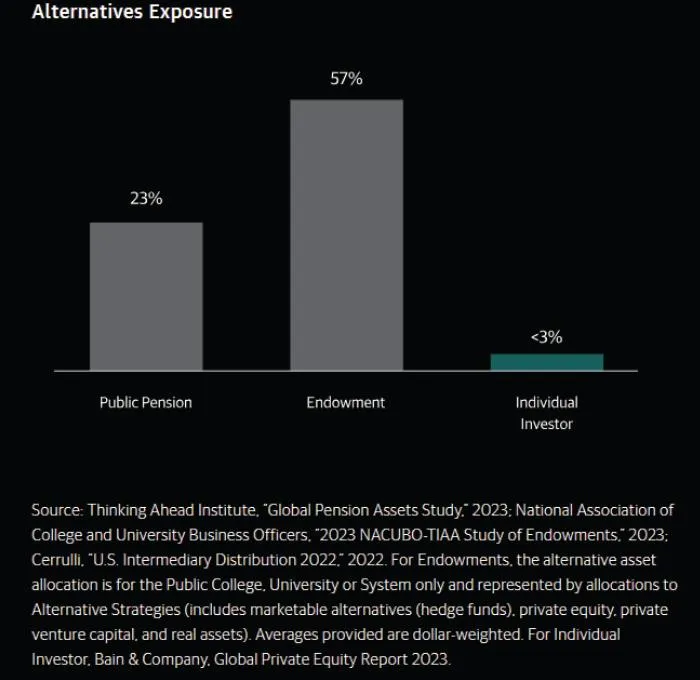

Growing your Wealth
For over 30 years, Madrona Financial & CPAs has been helping individuals and families improve their financial well-being
by giving them experienced advice on public investments, private markets (real estate, private equity, private credit), insurance, taxes and tax planning, executive compensation, business succession strategies, advanced gifting strategies, estate planning, and more. Danielle and her staff have offices in Park City and Cottonwood Heights, Utah, while Madrona is headquartered in Washington State.
Each month we will peel back layers of a single financial or tax topic. As we enter a new year, let’s reflect on our goals and improve our financial well-being and investing knowledge.
To that end, this month’s topic is Public versus Private Markets. Most people are familiar with the Public Markets, however, the Private Markets are traditionally underutilized by individual investors.
What are Public Markets?
Stock Markets: Facilitate the trading of stocks. Examples include the New York Stock Exchange (NYSE) and NASDAQ. Only public companies that have gone through an initial public offering (IPO) can participate by listing their stock ownership to investors.
Bond Markets: Allow buying and selling of debt securities, such as corporate bonds, government bonds, and municipal bonds. In the transaction, an investor lends money to a bond issuer in exchange for recurring interest payments and return of principal at maturity.
Commodity Markets: Enable buying and selling of physical goods, such as agriculture, energy, and metals. Commodities can be traded on specialized exchanges, most famously, the Chicago Mercantile Exchange (CME).
The Foreign Exchange (Forex) and Derivatives Markets are also public markets, though less common to the Individual investor.

What are Private Markets?
Private Real Estate Funds: Pool money from multiple investors to directly purchase various real estate projects. Examples include residential, self-storage, data centers, industrial warehouses, senior living, apartments, and more. Investors may participate in the potential appreciation of the property and rents collected in the form of monthly/quarterly distributions, like a passive landlord.
Private Credit Funds: Pool investor funds to issue loans not involving a traditional bank or the public markets. Loans are provided to a vast array of borrowers, including small-to large sized businesses and real estate projects in need of financing. Investors may profit from the interest rate charged to the borrowers via monthly/quarterly distributions and potential appreciation of the credit fund.Private Equity Funds: Most invest in private companies (not listed on a stock exchange) at various stages of development, from early stage startups to more mature businesses. The goal is to improve and grow the company, and ultimately sell for a profit to the investors. Hedge funds and venture capital are other types of Private Market investments, though generally reserved for only institutional, high, or ultra-high net worth investors.
In 2023, The Thinking Ahead Institute “Global Pension Assets Study,” found that individual retail investors’ portfolios contain only a small allocation ~3% to private market or alternative
asset classes, while pension funds often have a ~25% allocation to private markets, or endowments, which may have a ~50% allocation (see graph).
This begs the question, if institutional investors (public pensions and endowments) see value in holding Private Market investments within their portfolios, shouldn’t we all?
Private Markets represent an asset class that was once only available to institutional investors and ultra-high net worth, due to high investment minimums, often in the millions of dollars, which also could be locked up for 10+ years. Considered risky, illiquid, and expensive, Private Market investments have not, historically, been held in individuals’ investment portfolio.
Over the last decade, regulation changes* and restructuring of private market funds have improved individual retail investors’ access to Private Markets through lowered costs, improved liquidity, and smaller investment minimums. Currently, individual retail
investors with a net worth of $250,000 can consider certain private market options, especially as minimums have come down as low as $2,500 per investment.
According to Morgan Stanley, “Companies have raised more money in Private Markets than in Public Markets in each year since 2009. For example, companies raised $3.0 trillion in Private Markets and $1.5 trillion in Public Markets.”* With Private Markets being larger than Public Markets, deemed valuable to institutional and ultra-high net worth investors, and now more accessible to individuals, it presents a unique opportunity for individuals to explore expanding into Private Markets investments.
SEC: Facilitating Capital Formation and Expanding Investment Opportunities by Improving Access to Capital in Private Markets.
Morgan Stanley, Public to Private Equity in the United States: A Long-Term Look
The information, suggestions, and recommendations included in this material are for informational purposes only and cannot be relied upon for any financial, legal or insurance purposes. Madrona Financial Services will not be held responsible for any detrimental reliance you place on this information. It is agreed that use of this information shall be on an “as is” basis and entirely at your own risk. Clients are not required to implement financial advice through Madrona affiliated. When we refer to preparation and filing of tax returns, tax returns are prepared and filed by our wholly-owned sister company Bauer Evans, Inc. P.S., a licensed certified public accounting firm. Madrona Financial Services, LLC is a registered investment adviser with the SEC. Our registration with the SEC or with any state securities authority does not imply a certain level of skill or training. Madrona Financial & CPAs is a registered trade name used singly and collectively for the affiliated entities Madrona Financial Services, LLC (“Madrona”) and Bauer Evans, Inc., P.C. (“Bauer Evans”). Investment advisory services are provided through Madrona. CPA services are provided through Bauer Evans

WRITTEN BY DANIELLE MEISTER, MADRONA FINANCIAL & CPAS
Recent Articles
Legacy Planning Mistakes
Growing your Wealth
Key to a Happy Retirement?Finding Yourself
Personal Tax Review Checklist
Can Money Buy You Happiness? Yes, It Can. However…

“Rooted In The 7 Areas That Sustain Wealth”
Everett Corporate Office
2911 Bond St Suite 200
Everett, WA 98201
Phone: 1 (844) MADRONA
Mountlake Terrace Office
6100 219th St SW, Suite 480
Mountlake Terrace, WA 98043
Phone: 1 (844) MADRONA
Park City Office
4554 N. Forestdale Dr. Unit 28
Park City, Utah 84098
Phone: 1 (844) MADRONA
Tacoma Office
1201 Pacific Avenue Suite 600
Tacoma, WA 98402
Phone: 1 (844) MADRONA
Bellevue Office
050 112th Ave NE Suite 130
Bellevue, WA 98004
Phone: 1 (844) MADRONA
Cottonwood Heights Office
2825 E Cottonwood Pkwy Suite 500
Cottonwood Heights, UT 84121
Phone: 1 (844) MADRONA
Growing Your Wealth





